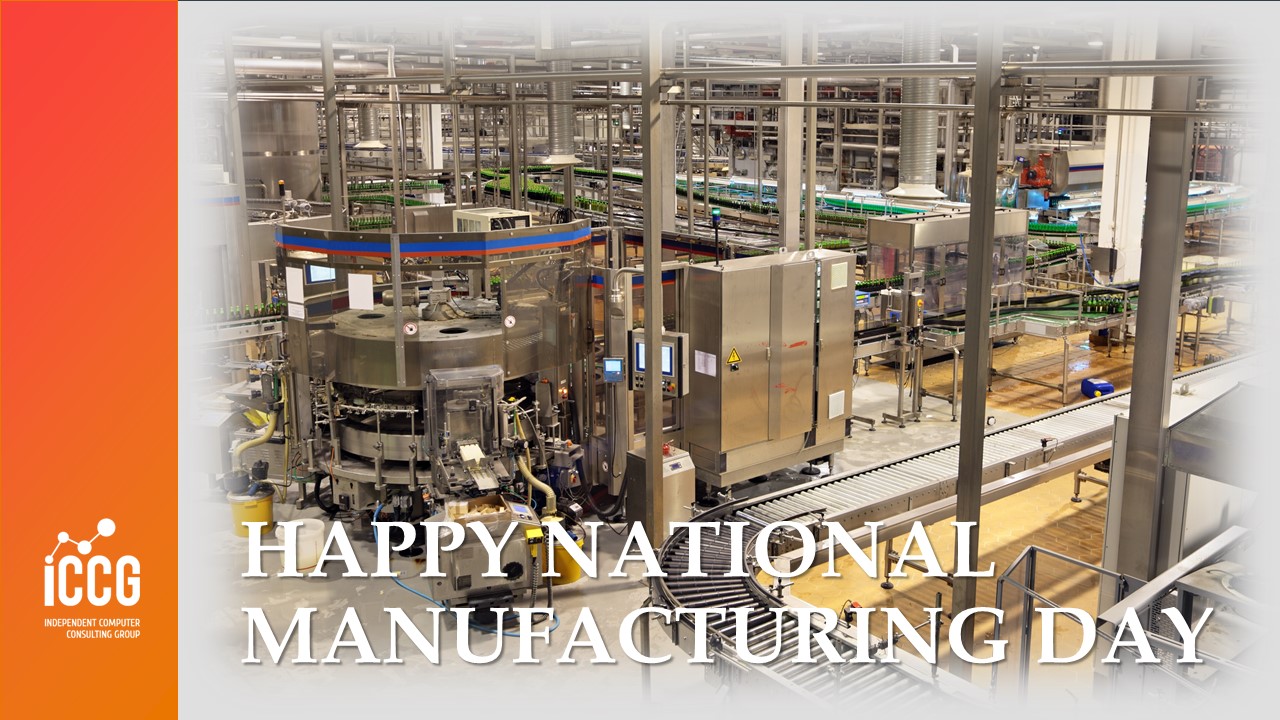Digital transformation is on the tip of many tongues in the technology industry of late; but like many potentially seismic shifts, this concept’s meaning and the impact it will have on how day-to-day business gets done are taking some time to develop. CIO defines digital transformation as “the acceleration of business activities, processes, competencies, and models to fully leverage the changes and opportunities of digital technologies and their impact in a strategic and prioritized way.” But more than just acceleration, digital transformation is about the need for businesses to outpace digital disruption and stay competitive in a rapidly evolving business environment.
Making Digital Transformation Part Of Your DNA
Topics: Digital Transformation, Manufacturing, Fashion & Retail, Food & Beverage, Distribution, Chemical, Equipment, Digital Strategy, digital disruption
Prioritizing Digital Transformation Opportunities
Regardless of industry, market, and geography, nearly every business on the globe has been touched by technological change. And these ongoing, and often unexpected, disruptions are impacting how business is conducted. For example, the World Economic Forum states, “It used to take Fortune 500 companies an average of 20 years to reach a billion dollar valuation; today’s digital start-ups are getting there in four.”
While increased competition is a powerful motivator for embracing digital transformation, so are the potential revenue opportunities. The World Economic Forum estimates that “the combined value—to society and industry—of digital transformation across industries is upwards of $100 trillion over the next 10 years.”
Topics: Manufacturing, Fashion & Retail, Food & Beverage, Distribution, Chemical, Equipment
Infor® LX is an ERP solution that offers deep industry functionality and flexibility to help you adapt to new manufacturing trends and industry changes.
Infor LX is a comprehensive, flexible and advanced enterprise resource planning (ERP) solution for mixed mode and process manufacturers that operate with an IBM System i environment (formerly AS / 400 or iSeries). This solution improves the efficiency of the main business processes, including manufacturing, logistics, channel management, customer relations, relations with suppliers and financial management. With Infor LX, companies can improve their efficiency, agility, sustainability and profitability by improving their ability to manage variable demand and adapt to changing market conditions.
Why should you invest in this technology?
Topics: Manufacturing, Food & Beverage, Industrial Manufacturing, Chemical & Life Sciences, Consumer Packaged Goods
In a perfect world, functionality and ease of use would be the top criteria manufacturers use when deciding to purchase, replace, or upgrade their Enterprise Resource Planning (ERP) solution. Unfortunately, in the real world, cost considerations rear their ugly head. Business leaders are concerned about the price of not only purchasing the solution, but also how much it will cost to implement, support, and maintain. Further, there is significant concern that an ERP implementation will cause significant disruption to the business, cause the organization to lose focus, or even “break” business processes that the company looked upon as core to their success.
Topics: Manufacturing, Fashion & Retail, Food & Beverage, Retail, Life Sciences, Industrial Manufacturing, Automotive
By Nick Castellina, Director of Industry & Solution Strategy at Infor®.
The Chief Financial Officer (CFO) has been mistakenly stereotyped as a back-office miser, worried about only one thing: the company’s bottom-line. CFOs have often been frugal, protecting the company’s wallet with an unwavering vow to be prepared for the proverbial rainy day. At least, that is the old-school notion.
Topics: Manufacturing, Food & Beverage, Rentals & Equipment, Fashion & Apparel, Industrial Manufacturing, CFO
ICCG is proud to celebrate National Manufacturing Day. Every year, thousands of manufacturers around the country open their doors to inspire the next generation of manufacturers.
Topics: Manufacturing, National Manufacturing Day
Expectations are high, as long as AI delivers real business value
What do IT decision makers really think about AI? Are they buying the hype? Are they laying some groundwork for artificial intelligence implementations?
Random interviews with several IT managers across a variety of industries on The Hub show floor at Inforum 2018 reveal what one might expect — a variety of opinions on AI. But most all believe it could be big, possibly very big.
Another widely held belief is that tapping into the capability of AI to optimize human potential will take some trial and error. To some extent, this reflects the thinking of sports superstar Venus Williams, who told a packed General Session at Inforum, “Failure is a huge part of knowing your pushing yourself hard enough.”
But all agreed on one thing: IT must acknowledge AI in some way, and at least begin to closely and seriously examine how it might fit into their organizations. After all, as Williams said, “It’s not where you start, but where you finish.”
Topics: Manufacturing, Industrial Manufacturing, AI, Artificial Intelligence, Machine Learning
AI As An Enabler Of Human Potential? You Can Bet On It.
Renowned theoretical physicist and futurist Steven Hawking was torn on the value of artificial intelligence. At one point, he said, “AI could be the biggest event in the history of our civilization. Or the worst. We don’t know if we will be helped by AI … or conceivably destroyed by it.”
But just before his death earlier this year, Hawking appeared to change his AI calculus: “Perhaps we should all stop for a moment, and focus not only on making our AI better, but also (focus) on the benefit to humanity.”
There, in a nutshell, from one of the most brilliant minds of the century is the AI conundrum. Is it, as Tesla founder Elon Musk said, “more dangerous than nuclear weapons?” Or is it more likely to “inject more pride and dignity into work focused on enhancing our communities,” as suggested by author and former president of Google China Kai-Fu-Lee?
Topics: Manufacturing, Industrial Manufacturing, AI, Artificial Intelligence, Machine Learning
The Most Critical Nine Steps In Your Digital Journey.
Manufacturers eager to jumpstart growth opportunities are embracing digital strategies. New technologies offer exciting ways to leverage sensor data, engage with customers, and automate processes. New ways of looking at products, services and the complete value chain are transforming the way we think about manufacturing products and distributing them to the market. While the potential impact is promising, it can also be intimidating. Where do you start? How do you measure success? This checklist provides nine elements critical to a successful digital deployment, based on a timely report by R “Ray” Wang of Constellation Research.
Topics: Manufacturing, Industrial Manufacturing, Digital Manufacturing, Digital Journey
10 Predictions For the Future Of Manufacturing
A panel of experts recently convened to discuss what the coming years hold for manufacturing. They all agree that manufacturing is “enjoying a moment,” and that optimism remains high among manufacturers. Still, there are challenges to overcome and technologies and processes that will be important for manufacturers to keep on the right path. In this paper, we’ll highlight 10 trends and challenges manufacturers need to keep an eye on.
Topics: ERP, Manufacturing, Industrial Manufacturing, Enterprise Resource Planning











